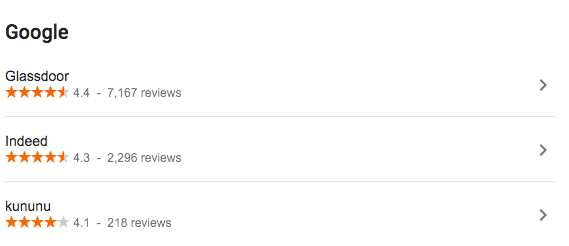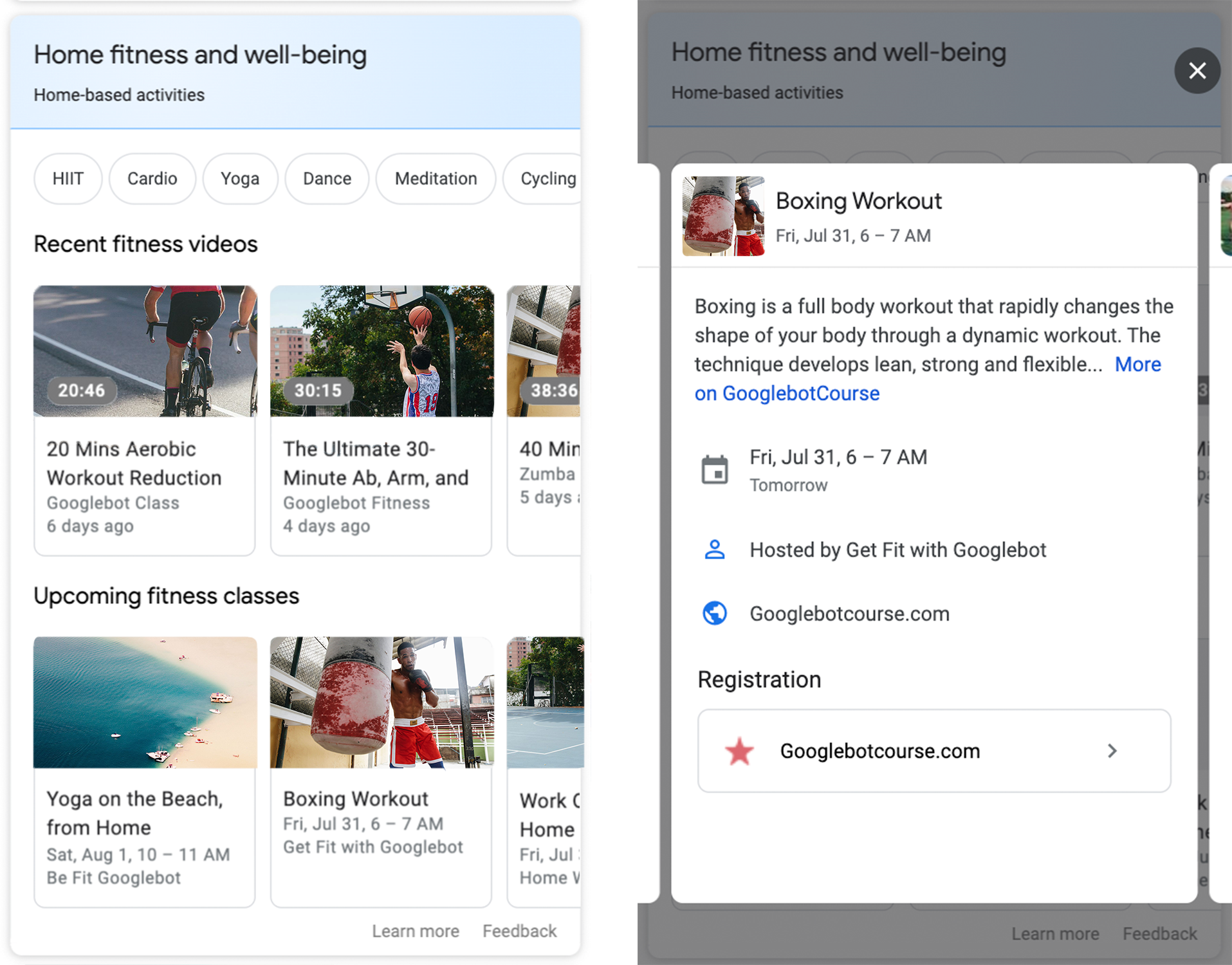
Structured data is a standardized way of providing information in addition to the actual content of the page to help search engines, like Google, better understand it. Google says these “explicit clues” about the page’s content, communicated via schema markup, also help make search results more engaging to users via rich results. This is particularly important for businesses with multiple locations, in which case location page schema would be applied to differentiate each location’s landing page.
Having a firm understanding of how to use structured data and specifically schema markup to help achieve these outcomes can help your business improve each location’s search engine visibility across hundreds or thousands of location pages.
In this guide, you’ll learn what location page schema is and why it matters, how it supports your local SEO and digital marketing goals, the unique challenges brands face in implementing schema, and how to add it to your brand’s location pages at scale.
What is location page schema?
Schema is the vocabulary used to add structured data, a standardized information format, to web pages in a way that helps search engines understand the content on that page. By doing so, search engines can better determine if the page matches the searcher’s intent, the quality of the page’s content, if rich content is present on the page, and more. These are powerful ranking signals which can help improve your search engine visibility or achieve a Featured Snippet.
Google, Microsoft, Yahoo, and Yandex founded Schema.org, where you’ll find documentation, guidelines, examples, and a schema validator.
Location schema includes all markup relevant to pages dedicated to a local business. This includes the LocalBusiness schema type, which enables marketers to mark up a local page with information such as:
- Currencies and payment types accepted
- Hours of operation
- Brand or organization name
- Address and area served
- Content information
- Founder and founded ****
- Legal name
- Offers
- And a lot more – see the LocalBusiness documentation for a complete list
Other types of business schema markup
In addition to the broad LocalBusiness schema type, the vocabulary provides several specific types of business schema markup, including:
- AnimalShelter
- ArchiveOrganization
- AutomotiveBusiness
- ChildCare
- Dentist
- DryCleaningOrLaundry
- EmergencyService
- EmploymentAgency
- EntertainmentBusiness
- FinancialService
- FoodEstablishment
- GovernmentOffice
- HealthAndBeautyBusiness
- HomeAndConstructionBusiness
- InternetCafe
- LegalService
- Library
- LodgingBusiness
- MedicalBusiness
- ProfessionalService
- RadioStation
- RealEstateAgent
- RecyclingCenter
- SelfStorage
- ShoppingCenter
- SportsActivityLocation
- Store
- TelevisionStation
- TouristInformationCenter
- TravelAgency
Now, here’s what schema is not. John Mueller has made it clear that structured data is not a ranking signal:
There’s no generic ranking boost for SD usage. That’s the same as far as I remember. However, SD can make it easier to understand what the page is about, which can make it easier to show where it’s relevant (improves targeting, maybe ranking for the right terms). (not new, imo)
— johnmu is not a chatbot yet 🐀 (@JohnMu) April 2, 2018
However, as he says, it helps search engines understand the content and when it’s relevant to a query. In that way, schema markup is definitely an impactful part of a local SEO strategy.
Recommended reading: 5 Top Local Landing Page Features for Enterprise Brands
Why do your local pages need structured data?
As Google says in its introduction to structured data resource for developers, “Google Search works hard to understand the content of a page. You can help us by providing explicit clues about the meaning of a page to Google by including structured data on the page.”
Structured data helps trigger rich results in search which are more engaging and can improve click-through rates (CTRs), as well. All kinds of special search results types could be relevant to local businesses; for example, if your brand is actively hiring, you might use ‘EmployerAggregateRating’ to display aggregate employer ratings from sites like Glassdoor and Indeed.
Image source: Google
The ‘Event’ markup type can trigger interactive event listings to showcase upcoming sales, customer appreciation celebrations, fundraisers, and other events happening at that specific location.
Image source: Google
Google shares case studies on how large and well-known brands have benefitted from implementing schema markup on their pages, including:
- The Food Network optimized 80% of its pages using structured data to qualify for rich snippets and gained 35% more visits as a result.
- Rakuten found that users spend 1.5X more time on pages with structured data markup.
- Nestlé determined that pages with rich results in search had an 82% higher CTR.
Other types of page markup that may be useful for multi-location brands and franchises include:
- Speakable to identify sections of the page and passages of text best suited for audio playback by voice assistants and accessibility devices.
- FAQ to identify a list of questions and answers about that specific business location and the brand as a whole.
- Image metadata to enable richer results in Google Image searches and enhance the visibility and engagement of your local photos.
- Review and aggregate rating to display a review excerpt and/or combined rating scores in a rich result.
How do you add schema markup to local pages?
Google recommends using JSON-LD, a JavaScript notation embedded in a <script> tag in the <head> and <body> elements of the location page’s HTML, in most cases. There are two alternatives if, for some reason, JSON-LD is not available or suitable:
- Microdata, an open-community HTML specification.
- RDFa, an HTML5 extension with tag attributes that correspond to visible page content.
JSON-LD is the preferred structured data format for two reasons, according to Google:
- “The markup is not interleaved with the user-visible text, which makes nested data items easier to express.”
- Google can read JSON-LD data when it is dynamically injected into the page’s contents, such as by JavaScript code or embedded widgets in your content management system.
In order to be effective, schema markup must comply with Google’s ‘general structured data guidelines.’ Code should then be validated using Google’s rich results testing tool.
The challenge of applying schema markup for multi-location brands
Now, here’s where it gets challenging for multi-location brands and franchises. Implementing schema markup for hundreds or thousands of location pages is a daunting task. Keeping those pages up-to-**** as their content changes is an additional challenge in itself.
Hours of operation, products, and services, physical location, number of employees, ethics and diversity policies, and payments accepted are just a few examples of the types of key business data that can evolve and require updating over time.
Using JSON-LD inside a purpose-built enterprise local publishing platform automates schema markup and testing so every location page across the organization is marked up in accordance with schema best practices.
This is one way Rio SEO helps enterprise brands show up in every relevant market with a compelling, engaging presence. You can boost your brand’s presence in every location with relevant local content created for consumers, and optimized for search engines to understand its relevance and display rich results.
Recommended reading: The 5 Most Common Challenges Brands Face when Creating Local Landing Pages
Structured data best practices for brands
Providing a cohesive local presence and exceptional customer experience across hundreds of locations or service areas isn’t an easy feat. Building best practices into your workflow, processes and the technology underpinning your ability to scale can help. Here’s how.
1. Use the JSON-LD format for structured data
Google prefers this format and it’s the easiest to implement at scale.
2. Explore relevant structured data markup
Check out Google’s structured data features and see which ones can help provide a richer, more engaging experience for your local customers in search.
3. Experiment with the structured data codelab
Even if you’re going to engage a partner to implement structured data at scale for your brand, it’s important that your brand’s marketing and SEO teams understand how it works. Visit this codelab to walk through the process of adding structured data to a page.
4. Always validate schema markup before publishing and the URL inspection tool after
Use Google’s rich results testing tool to validate your markup. Then, use the URL inspection tool in your brand’s Google Search Console to view details on how Google reads the structured data on your page.
5. Measure the impact of your schema strategy
Follow Google’s best practices for A/B testing in Search to limit the interference inherent to testing in a live environment where you cannot control all external factors.
6. Find a partner with the technology and local SEO expertise to support your strategy
Automate where you can, and ensure your local marketing partner has the technical skills and SEO chops to intervene with manual corrections and optimizations where necessary.
7. Explore advanced local schema strategies for your business
Learn how to use ‘additional type,’ ‘SearchAction,’ and ‘alternateName’ advanced schema to take your strategy to the next level in ‘Advanced Schema Strategies for Local SEO’ by Chad Klingensmith.
More helpful resources:


